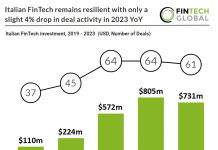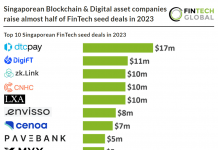A report by BCG and ADDX has forecasted that asset tokenisation will be a $16.1trn business opportunity by 2030.
According to FinTech Finance, the projected growth in tokenisation of assets is driven by demand from a wide range of investors for greater access to private markets.
Tokenisation and fractionalisation of assets lower barriers to investment in private markets by sharply reducing minimum lot sizes. Tokenised investments can also be borderless, enabling investors to invest in new markets.
Asset tokenisation refers to the creation of tokens on a blockchain to represent an asset, in order to facilitate more efficient transactions.
The report listed five reasons asset tokenisation may be about to reach wide global adoption. These reasons include increased trading volume and more asset classes being tokenised.
Strengthening stakeholder sentiment globally, a growing pool of active developer talent in the blockchain market and monetary authorities and regulators recognition were cited.
The report found growth in tokenised assets globally is anticipated in equities, bonds and investment funds amongst others. By 2030, tokenised assets are expected to make up 10% of global GDP.
Study?recommendations
The study recommended financial institutions may finding ways to pilot and deploy asset tokenisation projects by upgrading business.
Developers could create standard architectures to ensure a better on-ramp experience to the tokenisation world. Financial literacy among clients should be worked on, while regulators could establish sandboxes to promote innovation.
ADDX CEO Oi-Yee Choo said, ?Asset prices can only rise to their true economic value if the barriers to investor participation and ownership transfer can be lowered. For years, the technology for overcoming those barriers was expensive and therefore available only on public exchanges.
“Blockchain changes the game because it can be applied cost effectively to private markets and alternative assets, where investors are fewer in number, albeit wealthier, and products are more bespoke.
?The result should set our hearts racing: assets can be liquid for both public and private markets. The potential economic benefits are considerable.
“Recognising assets for what they are truly worth should translate into more investments and better capital allocation, which will in turn generate economic growth and jobs. The real winner here is the real economy.p>
Copyright ? 2022 FinTech Global











